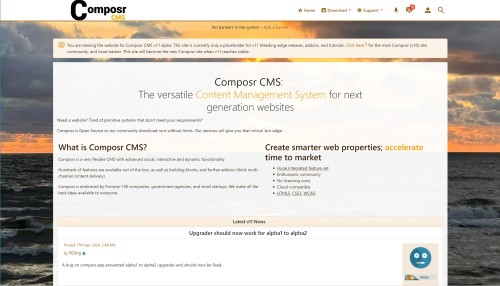Featured Sites: A-Z Index
H
Newest 10 Entries
| Question | How can members edit their profiles and account settings? |
|---|---|
| Answer | Members can edit their profiles and account settings through the "Edit" tab on their profile page. They can change their password, update personal information, manage their avatar and signature, and adjust their privacy settings. Administrators have access to additional options for managing member accounts. |
| Question | What is the difference between member terms? |
|---|---|
| Answer |
It's important to understand these distinctions to properly manage permissions, track user activity, and personalize the website experience. |
| Question | What are Welcome Emails and how do they work? |
|---|---|
| Answer | Welcome Emails are a series of automated emails sent to new members on a predefined schedule. They can be used to introduce the website's features, encourage engagement, and provide helpful information. Website administrators can customize the content and schedule of these emails. |
| Question | How can I enhance or enforce the security of member passwords? |
|---|---|
| Answer | Composr offers several features to improve password security:
|
| Question | Can I import or export member data? |
|---|---|
| Answer | Yes, Composr allows you to import and export member data using CSV spreadsheet files. This is useful for transferring member information between different systems, performing bulk updates, or creating backups. The export feature provides various filtering options, and the import feature supports adding new members and updating existing ones. Go to Admin Zone > Security > Members > Export members. |
| Question | What are usergroups and how do they work? |
|---|---|
| Answer | Usergroups are a way to categorize members and assign them specific permissions and privileges. Each member can belong to one or more usergroups, and the permissions granted by those usergroups determine what actions they can perform on the website. Website administrators can create and manage usergroups, define their permissions, and assign members to them. They can also assign leaders who then have permission to manage the members of that specific usergroup. |
| Question | What are Custom Profile Fields (CPFs) and how are they used? |
|---|---|
| Answer | CPFs allow website administrators to collect additional information from members beyond the basic profile fields. These fields can be customized to fit the specific needs of the website, such as collecting job roles, hobbies, or interests. CPFs can be used to:
|
| Question | How do new members join a Conversr website? |
|---|---|
| Answer | Members can join your Composr site in a few ways:
|
| Question | What is the Composr Member System? |
|---|---|
| Answer | The Composr Member System is the system used by the Conversr forum software to manage user accounts and information. This includes usernames, passwords, profile information, and usergroups. It also handles user registration, login, and account management. For websites not using Conversr, the member system of the third-party forum software would be used. |
| Question | Can I Use Composr Galleries to Publish Podcasts? |
|---|---|
| Answer | Yes, Composr supports creating podcasts from galleries. The podcast URL follows this format: http://yourbaseurl/backend.php?mode=galleries&select=galleryname&type=rss&itunes=1. Replace yourbaseurl and galleryname accordingly. This URL can be used to subscribe to the podcast in iTunes or other podcast applications. |
Top 10 Entries
| Question | Can I filter my search results? |
|---|---|
| Answer | Yes, you can filter your search results by:
|
| Question | What is the difference between natural and boolean searching? |
|---|---|
| Answer | Natural search is a more relaxed approach where you type in your search terms and Composr tries to find the most relevant results, even if they don't contain all the words. It's like a Google search. Boolean search requires more precision and uses operators like "+", "-", and quotation marks to define exactly what you're looking for. For example, searching for "+car -maintenance" will only return results that contain the word "car" but not "maintenance". |
| Question | How do I search my Composr website? |
|---|---|
| Answer | There are a few ways to search your Composr website:
|
| Question | How do I mark correct answers in a quiz? |
|---|---|
| Answer | For questions with predefined answers, you can mark correct answers by adding [*] after the answer. If no answer is marked correct, the question will require manual marking. You can also use the [UNMARKED] tag after a question to exclude it from scoring. |
| Question | What is the input syntax for quiz questions? |
|---|---|
| Answer | Quiz questions are inputted in blocks, separated by blank lines. The first line is the question, followed by potential answers on subsequent lines. Different question types are indicated by tags after the question, such as [MULTIPLECHOICE], [MULTIMULTIPLE], [LONG], [SHORT], and [SHORT_STRICT]. |
| Question | Can I create complex, multi-screen quiz interfaces in Composr? |
|---|---|
| Answer | While Composr's built-in quiz system is excellent for standard formats, creating intricate multi-screen quizzes might require custom development using Composr's decision tree framework or other programming tools. This allows for highly customized quiz structures and advanced branching logic. |
| Question | How can I analyze quiz results effectively? |
|---|---|
| Answer | Composr enables you to export quiz results to a spreadsheet file, facilitating in-depth data analysis. This is especially useful for manually marked questions, identifying competition winners, and processing data for marketing or research purposes. |
| Question | What are Quiz Sets and how can I use them? |
|---|---|
| Answer | Quiz Sets are a helpful organizational feature in Composr. By prefixing quiz names with "Example: ", you can group related quizzes together. This allows for combined scoring and percentage calculations, particularly beneficial for multi-part questionnaires or tests. |
| Question | How does scoring work for quizzes with different question types? |
|---|---|
| Answer |
|
| Question | Can I reward users for completing quizzes? |
|---|---|
| Answer | Yes, you can reward users with points for successfully passing a test. This incentivizes participation and encourages users to engage with your content. |





